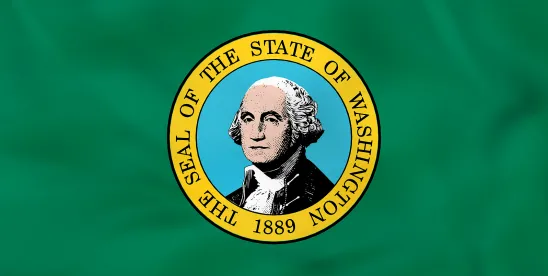On May 13, 2025, Washington State enacted Substitute House Bill (SHB) 1308, which goes into effect on July 27, 2025. This new law amends RCW 49.12.240 and 49.12.250, significantly changing employer’s obligations regarding employee access to personnel files. It replaces prior Washington State Department of Labor and Industries (L&I) guidance and related Washington Administrative Code (WAC) rules, introduces new deadlines, and creates new risks for noncompliance, including a new private cause of action for employees against noncompliant employers.
Quick Hits
- SHB 1308 takes effect on July 27, 2025, amending state laws RCW 49.12.240 and RCW 49.12.250 and superseding prior L&I guidance and WAC rules regarding personnel file access.
- Washington State previously allowed employees to request certain personnel records from their employers. The new amendment extends the deadline for employers to respond to personnel file requests to 21 calendar days, which is longer than the “reasonable period” standard that was previously interpreted by L&I as 10 business days.
- SHB 1308 introduces a private cause of action, statutory damages, and attorneys’ fees remedies against employers that do not comply.
Key Provisions of SHB 1308
Effective Date and Supersession of Prior Guidance
The new law becomes effective on July 27, 2025, and supersedes state regulation WAC 296-126-050 as well as previous L&I guidance, which was often interpreted as requiring broader access and faster response times. The new law narrows the definition of “personnel file” and clarifies the types of records to which employees are entitled.
Definition of Personnel File
The new law amends RCW 49.12.240 and defines “personnel file” to include:
“(a) All job application records;
(b) All performance evaluations;
(c) All nonactive or closed disciplinary records;
(d) All leave and reasonable accommodation records;
(e) All payroll records; and
(f) All employment agreements.”
The law does not require employers to create records they do not already maintain, nor does it establish a retention schedule.
Expanded and Clarified Deadlines
Under prior L&I guidance, employers were expected to provide access to personnel files “within a reasonable period of time,” interpreted by L&I as 10 business days. SHB 1308 amends RCW 49.12.250 to require employers to provide a copy of personnel files within “21 calendar days after the employee, former employee, or their designee” requests the file. This is a firm statutory deadline, though it provides more time for compliance than previous guidance.
Written Statement of Discharge
The new law additionally creates a statutory requirement for employers to provide a discharge statement upon request. Specifically, if a former employee—defined as an employee “separated from the employer within three years of the person’s request”— submits a written request, the employer must provide a signed, written statement that includes: (1) “the effective date of discharge;” (2) “whether the employer had a reason for the discharge;” and (3) if a reason existed, the reasons for the discharge. This written statement must also be provided within 21 calendar days of receiving a written request.
Annual Inspection and Correction Rights
SHB 1308 leaves largely unchanged prior obligations regarding annual employee inspections of their own files. Employees still have the right to inspect their personnel files at least once every year. Upon receiving such a request, employers are required to provide a copy of the personnel file at no cost to the employee within 21 calendar days. Employees may also request, once per year, that the employer remove information from the file that the employee believes is irrelevant or erroneous. If the employer declines to remove the information, the employee may submit a written rebuttal or correction, which the employer must include in the personnel file. Former employees retain these rights for up to two years after their separation from employment.
Privacy Protections
The law does not override existing state or federal privacy statutes regarding nondisclosure of certain information. Employers are required to observe all applicable privacy laws when responding to personnel file requests.
Private Cause of Action
Employees and former employees may now enforce the statute in superior court. Before filing suit, they must provide a notice of intent to sue—though the notice may be provided simultaneously with the initial request for personnel records.
Statutory Damages
The law establishes a tiered system of statutory damages for noncompliance:
- $250 if the file or required statement is not provided within 21 days of the request;
- $500 if not provided within 28 days of the request;
- $1,000 if provided later than 35 days; and
- $500 for any other violations.
Attorneys’ Fees and Costs
Prevailing employees are entitled to reasonable attorneys’ fees and costs, increasing potential liability for employers from the previous version of the law. The statute also states that employees are entitled to equitable relief. Though the nature of that relief is undefined by the statute, it seems likely that a court could compel an employer to produce requested files.
Next Steps for Employers
In anticipation of the July 27 effective date, employers may want to review and update their personnel file policies, train their HR staff, and ensure continued compliance with privacy protections. Specifically, employers should consider taking the following steps to prepare for when SHB 1308 goes into effect:
- Inform HR departments and managers about the new law, its deadlines, and the revised definition of personnel files.
- Review and update personnel file policies and procedures to reflect the new statutory requirements and deadlines.
- Continue to observe all applicable state and federal privacy laws when responding to requests.






 />i
/>i

